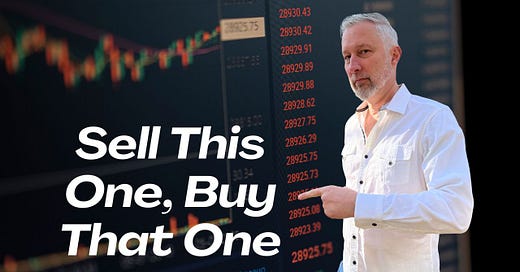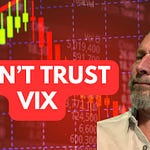You’ve probably heard me talk about the wheel strategy and how important it is to trade with clear objectives. This week, I put both of those to work — and gave the wheel a little twist.
Here’s the setup:
I’ve held 200 shares of AT&T for a while. When the stock’s up, I’ll sell covered calls. If I get assigned, great. If not, I hang tight and look for a chance to sell cash-secured puts and buy shares back lower. It’s been a decent way to manage the position.
Recently, though, I found myself liking Verizon’s valuation more. So I sold a 43.5 put in VZ, aiming to get assigned and wheel into that name instead.
At the same time, I sold the 27.5 call on 100 of my AT&T shares — just out of the money. My goal? To get assigned and sell the shares while keeping the premium.
This is one way to rotate within a sector, meet trade objectives and use options to make the transitions smoother.
It’s not about trying to time the market perfectly. It’s about staying objective-focused and using the wheel with a bit of finesse.
#OptionsEducation #WheelStrategy #CoveredCalls #CashSecuredPuts #TradingWithPurpose
Options involve risk and are not suitable for all investors. Before trading options, please read Characteristics and Risks of Standardized Option (ODD) which can be obtained from your broker; by emailing investorservices@theocc.com; or from The Options Clearing Corporation, 125 S. Franklin St., Suite 1200, Chicago, IL 60606. The content posted by our authors is intended to be general education and / or general information in nature. We are NOT providing advice for any individual trader. No statement made by our authors or subscribers is intended to be a recommendation or solicitation to buy or sell any security or to provide trading or investment advice. Traders and investors considering options should consult a professional tax advisor as to how taxes may affect the outcome of contemplated options transactions. Futures and forex trading contains substantial risk and is not for every investor. An investor could potentially lose all or more than the initial investment. Risk capital is money that can be lost without jeopardizing one's financial security or lifestyle. Only risk capital should be used for trading and only those with sufficient risk capital should consider trading. Past performance is not necessarily indicative of future results.










Share this post